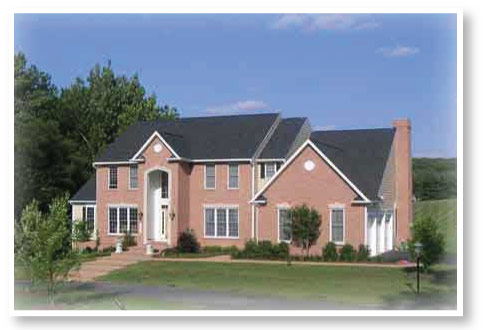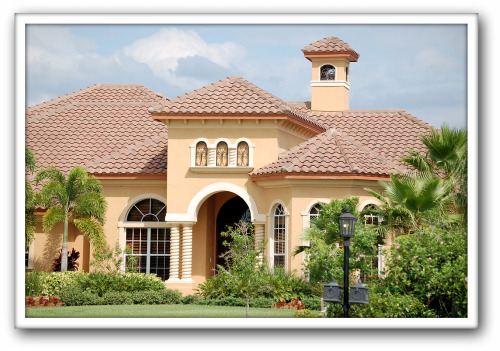Real Estate Investment: Return On Investment and Cash Flow Calculation
Real Estate Investment Articles | Housing Market News and AnalysisAchieve Positive Cash Flow
What is a positive cash flow? Simply speaking, if your rental income is more than your expense, then you have a positive cash flow. Otherwise, you have a negative cash flow.
Be very careful with negative cash flow. Your real estate agent may tell you that you can eventually get even because the house appreciates over time. But you can't count on that. Treat your rental property as a business. With a negative cash flow, you are speculating and speculation is very risky.
During the height of the housing bubble, a lot of real estate investors made mistakes by buying homes that didn't generate positive cash flow. Many people ignored the numbers and didn't buy investments based on proper evaluation. The result can be devastating. The current foreclosures are led by non-owner occupied houses.
Find the Cash Flow Property
In order to generate positive cash flow, you need to find the right property. In some areas, with the house price so high like California and New York, it's just impossible to find a property that can generate positive cash flow. For people in those states, the best way is to find it in other states. There're people turn their own house into a rental property instead of selling it. Some people buy a property at very low price and fix it up and then turn into a rental property. No matter what strategy you use, the goal is to find a low priced property that can generate positive cash flow.
Calculate Cash Flow
Let's take a look at what costs are involved in cash flow calculation and at what price a house can generate a positive cash flow.
The income is the monthly rental income. Consult with your local realtors to find the rental price in the same subdivision of the house you are interested in to estimate the monthly rental income. The expense includes maintenance fee, vacancy, mortgage, property tax, HOA and insurance. If you use a property management company, don't forget the management fee. If you use a realtor to rent it out, you should also include realtor fee.
Example rental property A
Assume the purchase of a single-family house A for $130,000, of which $30,000 applies to the land and $100,000 to the building which is important to calculate depreciation for annual tax deduction. We use straight line depreciation here.
Assume a cash down payment of 20% and a mortgage loan of $104,000 for 30 years at 6%. Assume closing cost is $2,500.
Assume there is no work needs to be done to the house so the initial improvement is $0. The maintenance fee is $480, vacancy rate is 1 month per year which is around 8.3333%, property tax is around $2,000, HOA fee is $100 a year and insurance is $300.
Assume the average rental price for a similar size house in the same subdivision is $1250.
What's the cash flow of this property?
Yearly income: $1250*12 = $15000. With one month vacancy it's reduced to $13,750. The monthly mortage payment with $104,000 at 6% is $623.53. The yearly mortgage payment is $7,482.36.
Assume you use realtor and MLS service to rent it out and the cost is one month rent. Your tenancy turns over around every two years. So the realtor cost is around 4% (1/24). If you advertise on newspaper or other media, then add your cost here. If you rent out by Craiglist, then this cost is $0.
Yearly Expense= $7,482.36(mortgage)+ $480(maintenance)+$2,000(property tax)+$100(HOA)+$300(insurance)+$13,750*4%(realtor/ads)=$10,912.36
Cash Flow = $13,750(rental)-$10,912.36 = $2,837.64 which is not bad.
If you use a management company who charge 8% of rental, then the yearly cash flow = $2837.64 - $13,750*8%(management fee) = $1,737.64.
Your total initial investment is $26,000(down payment)+$2,500(closing cost) = $28,500
Consider all the costs above, it is $1,737.64/28,500(initial investment) = 6.1% return on initial investment.
The US government allows you to depreciate your rental property over 27.5 year period. Depreciation = ($100,000(structure improvement)+$2,500(closing cost))/27.5 = $3727.27.
Your interest expense for the first year is $6,205.26. Add all the expense together $3,727.27(depreciation)+$6,205.26(interest)+$2,000(property tax) +$300(insurance)+$480(maintenance) + $100(HOA)+ $550(realtor/ads ) $1,100(management fee)= $14,462.53. Which mean you have a total rental loss of $712.53.
The tax rules on rental losses are different if you're a real estate professional. But if you're not a professional, you actively manage the property and your adjusted gross income does not exceed $100,000, the rental loss (up to a maximum of $25,000) could be deducted from other income such as salary, interest, and dividends. Multiply the rental loss by your federal income tax rate (in our example, 25%). The federal tax avoided as a result of this deductible rental loss is $178.
So instead paying Uncle Sam more tax on your positive cash flow, you can actually get back $178 as a result of the rental loss.
This may not sound a lot. But notice you are paying into your principal to increase your equity at the same time. If you factor in this as well, your income is now $1,737.64 (positive cash flow) + $1,277 (principal paid first year) + $178 (tax saving)= $3,193. Which is a $3,193/$285,000(initial investment)= 11.2% ROI, pretty good investment for the first year. Let's say you keep it for 10 year, what's the cash flow look like using our All-in-One Real Estate Investment Calculator?
Click on image for larger graph in new window.
Assume the rent keeps the same for the next 10 years, the house appreciate at a rate of 2% each year and the expense (inflation) increase at the same rate, what is the cash flow situation, the annual ROI and the total ROI after 10 years? Here's the picture of your 10 year cash flow and ROI using our All-in-One Real Estate Investment Calculator
Click on image for larger graph in new window.
Assume the same property but with the same rent and a lower cost. Let's say vacancy now is 4% instead of 8.3333%. No maintenance and realtor/ads cost. No HOA and management fee and no appreciation. How does the cash flow look like now?
Click on image for larger graph in new window.
Comparing last three results, we can see that the appreciation on house does wonder on return on investment but doesn't change your cash flow situation, while lowering the costs can actually do wonder on your cash flow situation. On the other hand, a lot of people ignore the necessary costs when they calculate cash flow, the result can be very misleading. Those small costs here and there are actually affecting your cash flow significantly.
For an accurate estimation, talk to your realtor to get all real numbers your need, an accurate calculation helps you understand your cash flow situation and gives you a clear picture of your future investment.
Latest News and Articles

Investor's Resources Center
Check house price
Search homes
Free landlord forms
Tenant credit screen
Foreclosure Search
www.foreclosure freesearch.com
www.freeforeclosure database.com


